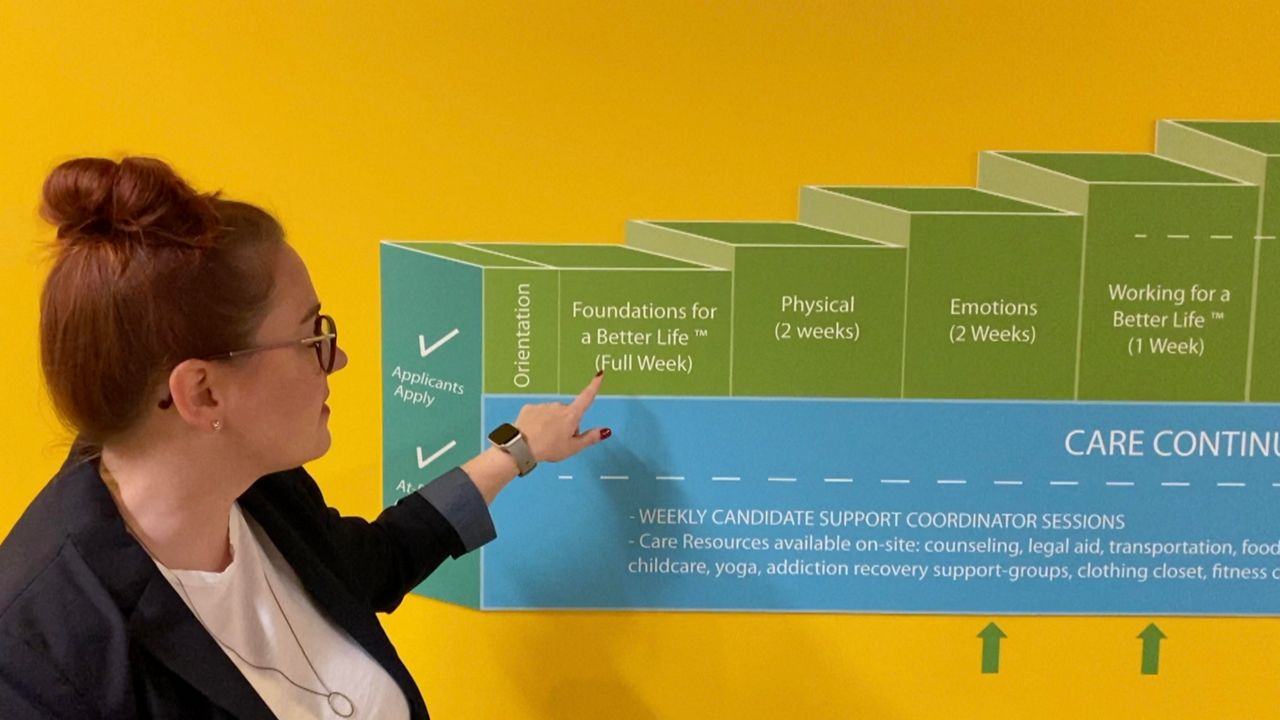COVINGTON, Ky. — New studies released by the Center for Disease Control show alcohol-related deaths rose sharply during the first year of the COVID-19 pandemic.
The director of a recovery center in northern Kentucky explained why she thinks more people are struggling, and what the center is doing to try to help them.
Through the course of the pandemic, many people have experienced some degree of struggle. But people who were already struggling saw the worst of it, said Life Learning Center Director of Development Laura Berkemeier.
“It was certainly a situation of feeling more isolated, and it was impacting their recovery negatively,” Berkemeier said.

The staff at the Life Learning Center, located in Covington, supports at-risk adults through provisions of education and care. 97% of clientele have a history of substance use disorder, Berkemeier said.
“We have individuals coming to us at the worst times in their lives. We work with them to break down those barriers,” she said. “Substance use disorder is non-discerning. It can impact anybody.”
549 people were referred to the center in 2019. That number jumped to 826 in 2020.
Numbers recently released by the CDC show a similar, perhaps more alarming trend nationally.
Deaths directly attributed to alcohol rose 26% in the U.S. during the first year of the pandemic, according to the CDC. The 2020 rate of deaths directly linked to drinking was the highest in the last 40 years.
“It’s not surprising to know, unfortunately, that many individuals fell into those deep, dark cycles while they were isolated at home during COVID,” Berkemeier said.
Berkemeier said she thinks people losing their support systems may have played a big part in the increase. The pandemic certainly limited the center’s ability to provide service, she said.
“This subset of society, these individuals we’re helping, they’re not used to being on Zoom, and they frankly are not great at doing it,” she said. “And if you already welcomed being alone. And you’re a quiet drinker, and nothing’s stopping you, you will very quickly find yourself in a scary situation. Then on the other side, too, if you’re used to having people around you, and you can’t, and you can’t go out to the bar, and you can’t socialize, you might find other ways to get that high that you’re missing.”
Since the start of the pandemic, the Life Learning Center has grown in the service it can provide. Berkemier said the program is designed to help people regain their dignity.
To graduate, participants need to secure employment or postsecondary education. Sadly, too few people ever reach that point, Berkemeier said. But it’s all the more motivation to keep trying to reach them.



